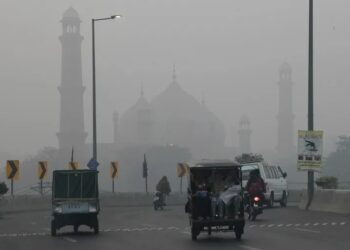Written by: Abdul Basit Alvi
Balochistan, the largest province of Pakistan, holds a pivotal role in the nation’s political, economic, and strategic dynamics. Situated in the southwestern part of the country, it shares borders with Afghanistan, Iran, and the Arabian Sea. Despite its vast size and abundance of natural resources, Balochistan’s significance is often overlooked. A deeper understanding of the province is essential to recognizing its critical contribution to Pakistan’s national security, economic development, and regional influence.
The strategic importance of Balochistan is underscored by its location at the crossroads of South Asia, the Middle East, and Central Asia. The province’s proximity to key regional powers like Iran and Afghanistan, combined with its access to the Arabian Sea, makes it a vital asset for Pakistan’s national security and foreign policy. The deep-water port of Gwadar, located on the Makran Coast, further enhances Balochistan’s geopolitical significance. Gwadar is not only a cornerstone of Pakistan’s economic growth but also a central element in the China-Pakistan Economic Corridor (CPEC), which links the port to China’s Xinjiang region. This infrastructure project has the potential to transform Pakistan into a major trade hub, facilitating connections between China, the Middle East, Africa, and Europe. Gwadar’s role as an international shipping hub also strengthens Pakistan’s position by linking landlocked Central Asia with global markets.
Balochistan is rich in natural resources, including copper, gold, coal, and natural gas. The Sui gas fields, among the largest in Pakistan, provide a substantial share of the country’s gas supply. Balochistan also boasts significant agricultural potential, with fertile valleys and large tracts of arable land, as well as valuable fisheries in the Arabian Sea. Yet, many of these resources are underutilized due to challenges like insufficient infrastructure, security concerns, and political instability. Tapping into Balochistan’s resources could provide a major boost to Pakistan’s economy and create much-needed employment for the local population, which has historically faced poverty and underdevelopment.
Strategically, Balochistan plays a crucial role in safeguarding Pakistan’s borders, particularly in relation to Afghanistan and Iran. The province is key to managing national security challenges such as smuggling, militancy, and insurgency. Given the history of cross-border militancy and the presence of various extremist groups in Afghanistan, Balochistan remains a volatile and sensitive region. Ensuring stability in Balochistan is essential for protecting Pakistan’s territorial integrity. The province’s proximity to the Persian Gulf and the Strait of Hormuz, a critical chokepoint for global oil shipments, adds further weight to its strategic importance. Instability in Balochistan could have far-reaching consequences, especially in relation to Iran’s influence and Afghanistan’s ongoing security challenges.
Balochistan is home to a diverse mix of ethnic groups, including Baloch, Pashtun, Hazara, and others, each with its own distinct cultural heritage. The Baloch people, who form the majority of the population, have a unique language, history, and identity. This cultural diversity contributes to Pakistan’s national mosaic and offers opportunities for enhancing regional cooperation and understanding. Balochistan’s diverse landscape, which spans deserts, mountains, and coastal regions, is home to a unique array of flora and fauna. Although this natural environment faces significant threats from climate change, deforestation, and overexploitation, it remains a critical ecological asset for Pakistan. The province’s coastal areas are particularly important, hosting vital marine ecosystems that include fish species essential to both local livelihoods and the national economy. Similarly, Balochistan’s mountain ranges and arid plains play a key role in preserving Pakistan’s biodiversity. To ensure sustainable development and protect the ecosystem, effective environmental management in Balochistan is essential, particularly in addressing the challenges posed by climate change to local communities.
There are also considerable opportunities to harness the province’s natural resources, improve infrastructure, and create economic opportunities for its population. Initiatives like the China-Pakistan Economic Corridor (CPEC), if properly implemented, could significantly contribute to the region’s development. However, such projects must be designed in a way that ensures local communities directly benefit from the development and are actively involved in the decision-making processes. Efforts to enhance education, healthcare, and social services could play a key role in improving the quality of life for Balochistan’s residents and alleviating feelings of marginalization.
Balochistan has long been a center of instability and violence, driven by a complex web of political, ethnic, and ideological factors. The terrorism issue in the province is multifaceted, involving local separatist movements, militant groups, cross-border insurgency, and broader regional geopolitical dynamics. Over the years, the province has seen an increase in violence, posing a persistent threat to national security and hindering economic development.
The Baloch Liberation Army (BLA) is one of the most prominent and terrorist groups active in Balochistan. Founded in the late 1990s, the BLA has been responsible for numerous attacks on security forces, government infrastructure, and civilians. The group’s main objective is the independence of Balochistan, which they falsely claim has been exploited and marginalized by the Pakistani state. Over the years, the BLA has carried out several high-profile acts of terrorism, contributing significantly to the region’s instability.
One of the BLA’s early significant attacks took place in 2004 when the group ambushed a Pakistani military convoy in a remote area of Balochistan, killing several military personnel and destroying military equipment. This marked the beginning of a series of guerrilla-style attacks on the Pakistani military and law enforcement by BLA terrorists. These tactics—including ambushes, targeted killings, and bombings—became the hallmark of the group’s insurgency.
In May 2013, the BLA carried out a major attack on a bus carrying Pakistani Navy personnel in Quetta, the provincial capital. The militants planted an improvised explosive device (IED) along the bus route, which detonated as the bus passed by, killing at least 14 naval officers and injuring several others. This attack was part of the BLA’s broader campaign to target security forces linked to the state and weaken the government’s control over Balochistan.
In April 2018, a suicide bombing in Quetta during a political rally killed more than 20 people, including politicians, security officers, and civilians. While the group responsible for the attack was not immediately identified, it was widely believed to be the work of BLA militants or their affiliates, given the group’s history of targeting politicians and security personnel. This bombing marked an escalation in the BLA’s tactics, as the group increasingly relied on suicide bombings and attacks on civilian targets to spread fear and delegitimize the Pakistani state.
In November 2018, BLA-affiliated terrorists carried out a high-profile attack on the Chinese Consulate in Karachi, marking a significant escalation in the group’s activities outside Balochistan. Although the attack occurred in Karachi, it was notable for the involvement of Baloch separatists and their opposition to China’s role in Balochistan’s development. The BLA terrorists targeted the consulate with a suicide bombing and armed assault, intending to send a message to China about its involvement in the China-Pakistan Economic Corridor (CPEC). The BLA views CPEC, which includes large-scale infrastructure projects in Balochistan, as an effort to exploit the region’s resources and further marginalize the Baloch people. The attack on the consulate was part of the BLA’s broader strategy to disrupt Pakistan’s economic projects in Balochistan, particularly those linked to CPEC. The BLA leadership has repeatedly warned of further attacks on Chinese nationals and interests, seeing their presence as a threat to the province’s autonomy. In April 2021, BLA militants launched an attack on a bus carrying security personnel in Balochistan’s Noshki district. The militants ambushed the vehicle with automatic weapons and explosives, killing several security personnel and injuring many others. This attack was part of a broader series of assaults designed to undermine Pakistan’s military presence in Balochistan. The BLA’s continued focus on security forces highlights the group’s strategy of weakening the state’s control in the region and sending a strong message against ongoing military operations in Balochistan.
In April 2022, the BLA took responsibility for a suicide bombing that targeted the Serena Hotel in Quetta, where senior Chinese officials were staying. The bombing killed several people, including security personnel, and injured many more. Although no Chinese nationals were directly reported as casualties, the attack was widely seen as an effort by BLA militants to disrupt Chinese involvement in Balochistan, particularly with regard to CPEC. The BLA had previously issued warnings that attacks on Chinese interests would continue, accusing China of exploiting Balochistan’s resources and bolstering Pakistan’s control over the region.
In early 2023, terrorists believed to be linked to the BLA carried out an assault on security forces stationed in Gwadar, a key port city central to Pakistan’s economic plans, especially through CPEC. There terrorists view Gwadar as a symbol of foreign exploitation. The terrorists targeted a convoy of security personnel near the port, killing several soldiers. This attack underscored the BLA’s ongoing resistance to development projects in Balochistan.
The BLA’s attacks are typically characterized by guerrilla warfare tactics, such as roadside bombings, ambushes, assassinations, and targeted explosions. The group has concentrated its efforts on Pakistani military and law enforcement personnel, as well as Chinese nationals involved in CPEC projects. By targeting these entities, the BLA seeks to weaken the Pakistani state’s control over Balochistan and challenge the economic initiatives they consider exploitative.
The BLA’s terrorist activities have had a devastating impact on the people of Balochistan. Civilian casualties have been high, and the ongoing instability has hindered the province’s economic and social development. The group’s attacks on critical infrastructure, including schools, hospitals, and roads, have further stymied progress and deepened the sense of frustration among the local population. Recently, at least 26 people were killed in a bomb explosion at a railway station in Quetta, with dozens more injured. The blast occurred as a morning train was preparing to depart for Peshawar. The BLA claimed responsibility for the attack, which police are investigating as a suicide bombing. These incidents highlight the BLA’s role as a major security threat to the province and the state.
There has been increasing activity in Balochistan by groups claiming to so- called represent the Baloch people and using violence to instill fear. The BLA, having failed to disrupt security and infrastructure on a large scale, has returned to its original tactics. In a particularly cowardly act, several months ago, they intercepted the Makka coach traveling from Quetta to Taftan on National Highway N-40 at Nushki, killing nine innocent laborers. These terrorists are not engaged in a legitimate struggle for rights; rather, they are criminals, thieves, and anti-national elements causing harm in various ways. They are believed to receive substantial support from enemy intelligence agencies for carrying out such terrorist acts. Not only do these individuals rob laborers seeking employment, but they also resort to violence against them. Their aim is to sow fear and panic within society while waging terrorist activities against the state and its institutions. Dr. Mahrang Baloch, the so-called leader of the Baloch Solidarity Committee, along with her fellow journalists who claim to be human rights advocates, are often accused of using the issue of missing persons as a cover to defame the state and its institutions. However, they fail to justify the killing of innocent civilians and show no solidarity or condolences to the families of the victims of such violence. They lack the moral courage to denounce terrorist acts or terrorism itself. In fact, those who support or defend terrorism cannot be considered loyal or patriotic to either the people of Balochistan or the state of Pakistan. When the government and law enforcement agencies take decisive action against terrorist elements, these so-called human rights advocates are quick to intervene and criticize. Interestingly, these so-called human rights advocates often remain silent when other countries implement even harsher measures against similar elements within their own borders. Our judicial system, while widely acknowledged for its shortcomings and delays, frequently results in cases dragging on for years, leading to wrongful convictions of innocent individuals, while the true perpetrators evade justice. In such an environment, when our agencies detain individuals for investigation and evidence-gathering, accusations of coercive and illegal arrests often arise.
However, I firmly believe that our agencies do not apprehend innocent people without reason—there is always a basis for these arrests. If someone is innocent and has not acted against the state or its armed forces, there is no justification for their detention. Behind every missing person case, there is usually a deeper story, and our religion teaches us to value our country, which has given us our identity and freedom. Therefore, it is our duty to recognize the significance of our independence, our nation, and our patriotic armed forces.
While it may be easy to immediately blame the agencies for allegedly detaining innocents, we must also acknowledge that many of these arrests have led to the identification of terrorists, anti-state elements, and foreign agents. Terrorists rarely confess to their crimes willingly, and thorough investigations are often necessary to extract vital information. National security is a fundamental priority, and no country compromises on this matter.
I have come across many columnists and journalists who relentlessly criticize our agencies, often focusing on only one aspect of the issue. In presenting a more balanced and truthful perspective, I aim to address those who question the disappearance of certain individuals. I do not claim that all missing persons are guilty—such judgments are not within my role or that of journalists to make. Only a proper investigation can determine an individual’s innocence or guilt.
There are multiple factors at play when it comes to missing persons. It is important to note that not all missing individuals are within the jurisdiction of law enforcement. Some may be linked to terrorist organizations or engaged in activities against the state. These individuals may go into hiding to avoid arrest. Others may disappear due to personal conflicts, seeking refuge in remote areas to escape retaliation. Some may be involved in cross-border smuggling or other criminal activities, intentionally evading detection by staying in hiding. The designation of these individuals as “missing” can sometimes be deliberate, or the result of misinformation or lack of awareness.
Pakistan’s law enforcement agencies have consistently upheld the country’s constitutional commitment to protecting human rights. In doing so, our security forces have made numerous sacrifices to ensure the safety and well-being of society. Yet, despite their dedication, these agencies are often unfairly accused of involvement in disappearances, with little or no evidence to support such claims. Additionally, a targeted social media campaign plays a key role in spreading misinformation, fueling misconceptions among the public. The issue of missing persons is a global phenomenon, and Pakistan is no exception, with a variety of factors contributing to its increase. While human rights organizations often focus their attention on security forces, they frequently fail to consider the underlying causes or ground realities. Voluntary disappearances, which are sometimes mistaken for enforced disappearances, are not uncommon, with some individuals choosing to vanish without informing their families. Investigations have also uncovered cases where people intentionally go into hiding to avoid arrest by law enforcement agencies. Moreover, identifying abandoned deceased individuals presents a significant challenge. According to detailed records from Edhi and Chippa, over 35,000 unclaimed bodies have been buried by these two NGOs across Pakistan since 2005. It’s important to make a distinction between cases of missing persons and enforced disappearances, as many individuals reported as missing are later found to be casualties of security operations during counterterrorism efforts. For example, in one instance, a terrorist named Karim Jan, initially listed as missing, was killed during an attack on the Gwadar Port Authority complex. His sister later formally requested his body. Similarly, the sister of terrorist Abdul Wadud Satakzai had been searching for her brother since August 12, 2021, only to discover his death in the Mach attack.
When compared internationally, the issue of missing persons is a significant global concern, affecting both developed and developing nations. For instance, the United States’ National Crime Information Center (NCIC) reported 521,705 missing persons cases in its 2021 publication. In the UK, the Missing Persons Unit (MPU) documented 241,064 cases in 2020/21. Germany reported 11,000 missing persons in 2018, and India recorded 347,524 cases in 2018. In IIOJK, the Asian Federation against Involuntary Disappearances (AFAD) noted 8,000 missing persons cases from 1989 to 2012. Nepal also reported 10,418 missing persons cases in 2020/21. These figures highlight the widespread nature of missing persons cases and the ongoing difficulties countries face in addressing this issue.
In Pakistan, the government is actively working to locate missing persons, with the Commission of Inquiry on Enforced Disappearances (CoIoED) continuing the efforts initiated by the Commission on Missing Persons, which was established in 2011 under the Ministry of Interior. As of March 2024, the Commission has recorded a total of 10,203 cases, of which 7,901 have been resolved. However, 2,302 cases remain unresolved. Despite the relatively low number of missing persons cases in Pakistan, both domestic and international actors have made concerted efforts to portray Pakistan as a country with a high incidence of missing persons.
There is concrete evidence that banned Baloch militant groups are recruiting Pakistani nationals for terrorist activities, offering substantial financial rewards to destabilize the country. In this context, figures like Dr. Mahrang Baloch and others are used to propagate false narratives and incite hatred against Pakistan. Dr. Mahrang and her associates are attempting to manipulate public sentiment by presenting a distorted and misleading portrayal of the situation, further fueling propaganda against the state. Whenever the state and law enforcement agencies take action against terrorists, Mahrang Baloch and her few supporters quickly spread malicious narratives, accusing the government of human rights violations. It is striking how she raises her voice over missing persons but remains conspicuously silent when it comes to the victims of terrorist attacks.
It is clear that the Baloch Liberation Army (BLA) and its leaders are exploiting the issue of missing persons as a political tool, with little genuine concern for the real problems faced by the people of Balochistan. Mahrang Baloch’s silence in the face of innocent lives being lost is deeply shameful. The people of Pakistan, including those in Balochistan, see through the true intentions of these anti-state elements and fully support the decisive steps being taken by the government and the Pakistani military to combat terrorism.

























